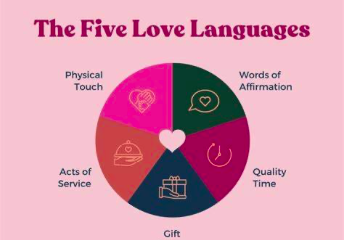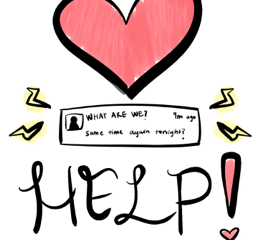In addition to being a time of change, development, and self-discovery, college is also a time when a lot of friendships, romantic partnerships, and professional networks are made. There is a common feeling of uneasiness that comes with starting life after college, regardless of whether you are graduating with a partner or a close-knit group of friends. The cozy cocoon of college life, where commitments and social encounters are frequently ingrained in the daily grind, is ready to pop. When the graduation cap is thrown away and the real-world calls, what happens to the relationships you’ve built?
The Difficulty of Change
The change from college to life after graduation can seem like a sudden departure from the past. You are left to establish a new rhythm of life when the routines, schedules, and opportunities for socialization that come with school disappear. Distance, new responsibilities, and changing personal goals have put your college relationships—which were frequently molded by close proximity, shared experiences, and mutual support in a dynamic environment—to the test.
This change is difficult. Relationships that used to flourish on frequent face-to-face encounters now have to withstand long-distance communication, shifting priorities, and different work schedules. It’s simple to believe that relationships will deteriorate or perhaps disappear when things get hectic. Nonetheless, a lot of relationships do survive the shift from college to adulthood, and those that do so because both parties are prepared to put in the time and effort necessary to keep the relationship strong. But, how?
After-College Friendships
One of the most durable bonds made in college is a friendship. The people you meet there are frequently the ones who see your greatest moments of vulnerability and confidence as you navigate the trials and victories of young adulthood. However, those friendships may feel vulnerable after graduation. People relocate to other places in search of employment, internships, or other opportunities. While some friendships inevitably fade away, others experience a time of dormancy before reviving.
Intentionality is the key to keeping friendships going after college. Even if everyone is busy getting used to life after college, making the effort to stay in touch with friends can make a big difference. People can be reminded that they are appreciated with a text, phone call, or even a planned video conference. It may take more preparation if you no longer live in the same place, but these efforts are what make a friendship last.
Furthermore, social media has both advantages and disadvantages. On the one hand, you may stay in contact with individuals wherever they may be. However, it can also occasionally produce a phony sensation of connectedness. It’s simple to like someone’s post or leave a remark on a picture, but it’s not the same as actually talking about your life, your challenges, and your successes. To remain strong, true friendships require deliberate effort rather than passive participation.
Romantic Partnerships: Getting Used to the New Environment
Perhaps the hardest relationships to sustain after college are romantic ones. College offers a controlled setting where connections develop and change in a largely predictable manner. However, the dynamics shift after graduation. Partners may end up in separate cities, with new interests, careers, and social networks. When life pulls you in various directions, the question of how to maintain the connection emerges.
Distance is frequently the first barrier for couples. Long-distance relationships, whether they are across states or just a few hours away, need communication, trust, and a shared commitment to succeed. The foundation of any relationship is communication, but it becomes even more crucial when you are unable to see each other as frequently. Lack of common everyday experiences can lead to gaps in understanding, but if you both make it a priority to stay in touch, whether it be by scheduled visits, frequent phone calls, or video chats, your relationship can survive.
The change in personal development is a significant component of romantic partnerships after college. People frequently undergo significant personal transition while in college, and this continues after graduation. In actuality, the post-college years are frequently characterized by a greater degree of independence, as partners must manage their employment, choose where to live, and occasionally even contend with the difficulties of unstable finances. If neither party is clear about their long-term vision, values, or ambitions, these changes may put strain on the partnership.
If a couple wants to be together after graduation, they must be understanding and patient with each other’s changing identities. As the stresses of the real world start to permeate daily life, support and understanding become more crucial than ever. Couples are more likely to survive the changes that accompany this next chapter if they can continue to communicate openly and reach agreements.
Professional Relationships and Networking
Professional ties made in college are just as important as personal ones, even though personal relationships are sometimes the first thing that spring to mind when considering life after graduation. These interactions can have a big influence on your job path, even if they might not always be as intimate as your friendships or love relationships.
Professional contacts frequently transform from casual acquaintances to significant networks after graduation. While LinkedIn, industry gatherings, and alumni groups are excellent resources for keeping in touch, genuine networking goes beyond simply sending an email every six months. It’s about being open to cooperation, checking in with coworkers, and providing assistance when needed. As you enter new professional arenas, these connections can offer a feeling of belonging and support.
The Role of Change and Growth
After college, relationships are ultimately characterized by change. Even when you no longer share a physical location with the same set of people, relationships can still develop and flourish in other ways. Flexibility—realizing that change is unavoidable and adjusting to new situations while preserving the essence of what makes the relationship meaningful—is the key to sustaining partnerships after graduation.
It’s acceptable if you lose contact with some folks. Although not all relationships are intended to survive forever, those that do tend to last because both partners have given their time, energy, and vulnerability to one another. If you don’t see someone as much as you used to, it’s still the quality of the connection that matters. Relationships that thrive after graduation are those where both people are genuinely interested in staying connected and are willing to make the effort, no matter how far apart life takes them.
I know that sustaining healthy relationships regularly can be challenging but, it can be even harder after you graduate college. Your whole life can be uprooted and change drastically from what it was in college. If you are dealing with that or will be soon here is an article that will go into more detail to help your relationships through this period of your life.


